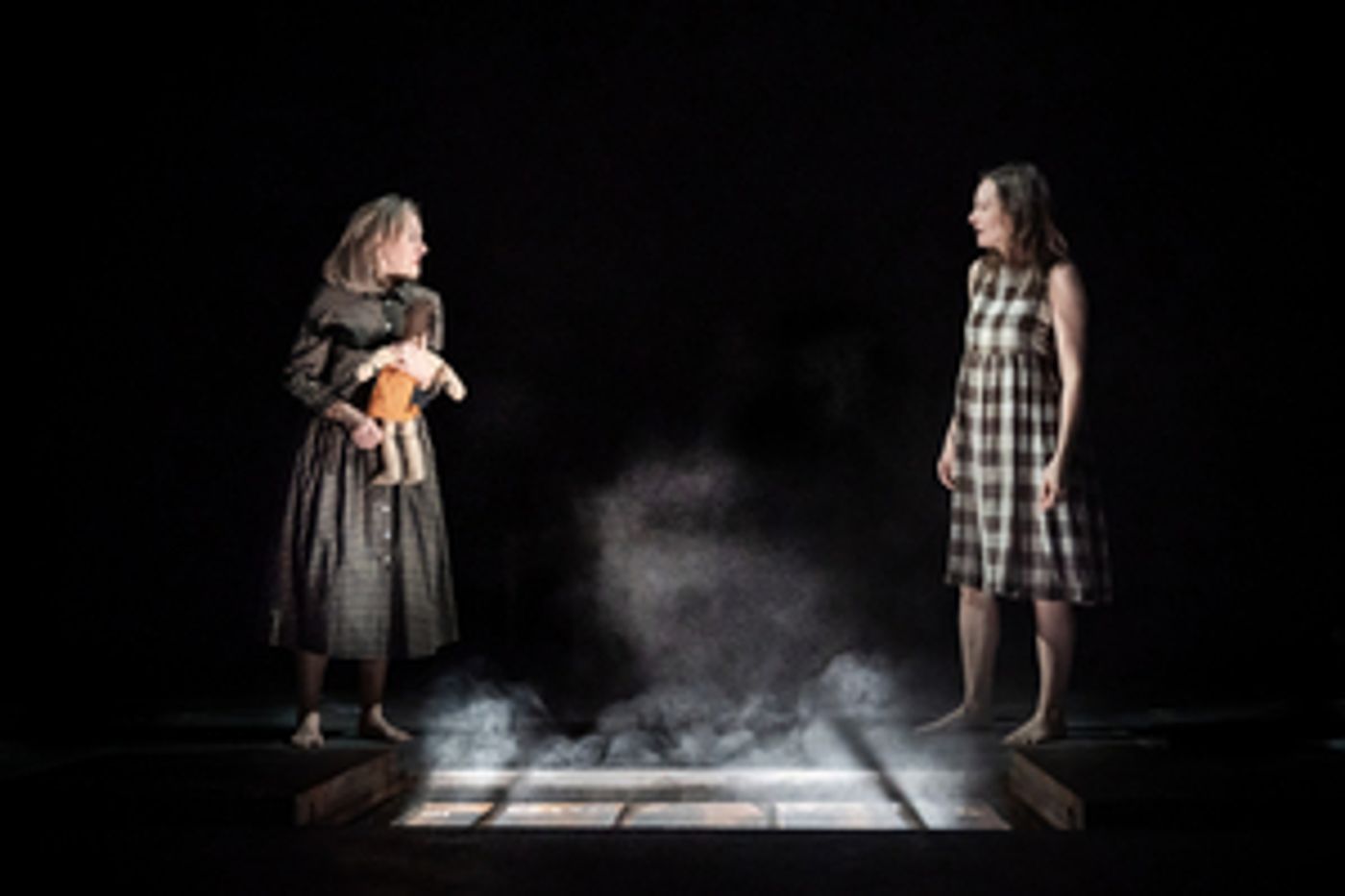Review: MY BRILLIANT FRIEND, National Theatre

![]() At the beginning of My Brilliant Friend, all there is on stage is a desk, a chair and a laptop. For the Olivier stage (and the for the National Theatre in general), it's noticeably, almost surprisingly bare, but one thing is clear: a story is about to be told.
At the beginning of My Brilliant Friend, all there is on stage is a desk, a chair and a laptop. For the Olivier stage (and the for the National Theatre in general), it's noticeably, almost surprisingly bare, but one thing is clear: a story is about to be told.
Based on Elena Ferrante's Neapolitan Novels, and adapted by April De Angelis - which is no small task given the original books amount to roughly 1,500 pages - My Brilliant Friend is the story of the friendship between Lenù Greco (Niamh Cusack) and Lila Cerullo (Catherine McCormack). The play starts in 1952 and ends in 2011, and audiences watch the girls grow up from children to teenagers to adults to wives and mothers, though sadly not strictly in that order.
Life in a small village outside of Naples proves constantly tumultuous; the girls are brought up in the shadow of local crime syndicates. But, in spite of their backgrounds, they both show a strong mental aptitude. When it is Lenù who is allowed to attend middle school and not Lila, their lives begin to diverge.
Across almost five hours, we see how Lenù becomes a novelist, whilst Lila struggles first as a manual labourer before becoming embroiled in civil unrest movements. Broadly speaking, part one deals with their childhoods and part two their adult lives, with countless characters entering and exiting as the girls fall in and out of love, success and happiness.
Cusack and McCormack play both women throughout it all, with subtle body language marking the age of their characters. Their performances are powerful, with Cusack's Lenù achieving a burgeoning confidence just as her brilliant friend Lila loses the same quality. McCormack carefully balances anger with a sense of fallenness, whilst Cusack's honesty draws audiences in.
The men of My Brilliant Friend are, by contrast, barely allowed to breathe. Marcello and Michele Solara - played respectively by Ira Mandela Siobhan and Adam Burton - the town's local loan sharks, are consigned to the Sopranos cliché of black suits and sunglasses. Professor Galiani (Badria Timimi), Lenù's husband, is always working on his next chapter or article, a characterisation many currently striking lecturers may find sadly humorous. It is left then to Lenù and Lila to write their own stories.
Director Melly Still has ensured this is, if anything, a stylish production. The set-pieces work well, with snapshot scenes often creative and artistic. The brutal depictions of domestic violence are nonetheless difficult to watch, and the impact of the seismic political shifts is resonant on stage. Jim Fortune's soundtrack provides a soundscape of passing time, with music ranging from opera to popular songs.
Yet My Brilliant Friend seems to partake in the same faults common to productions at the National Theatre of late. For a start, the play is too long. After the childlike energy of part one, the sombre domestic tragedy of part two has little to distinguish it from any other play that depicts similar scenarios. Entire scenes are played out for one piece of information to be revealed, and various characters are given side plots that prove distracting. One feels as if Angelis is trying to capture the living and breathing communities of Italy, but on stage these interludes are distracting, especially after four hours.
It seems ironic then that at one point Lenù pulls out a copy of Samuel Beckett's Happy Days, as by the end of this double bill one almost wishes for the sparseness represented in plays of that nature instead of this meandering epic.
Part one is motivated in part by the imaginations and aspirations of both young girls, lending an expansive, creative quality to the drama. Once the girls have grown up for part two, this is replaced by an uncomfortable comedic impulse - for example, Lenù's mother, Immacolata (Mary Jo Randle), becomes a caricature, whilst a bloated wedding scene makes little sense - and distracts from all the hard work done previously.
Tal Yarden's projections work well on the back wall to create shifts in setting and time, and Soutra Gilmour's tall staircase pieces offer a flexible sense of scale, but this still is not enough to fill the space. Surrounded by the dark walls of the Olivier stage, it is as if the cast are playing at the bottom of a well.
This is the National Theatre, so My Brilliant Friend looks great and is well acted. Maybe condensing the entirely of Ferrante's novels into one show would be too much, but currently there is not enough drive to take audiences sufficiently through the demanding run time. "My favourite key is delete," Lila states - it's a shame that such an impulse wasn't embodied in the writing and staging of this play.
My Brilliant Friend at the National Theatre until 22 February, 2020
Photograph credit: Marc Brenner.
Reader Reviews
Videos

